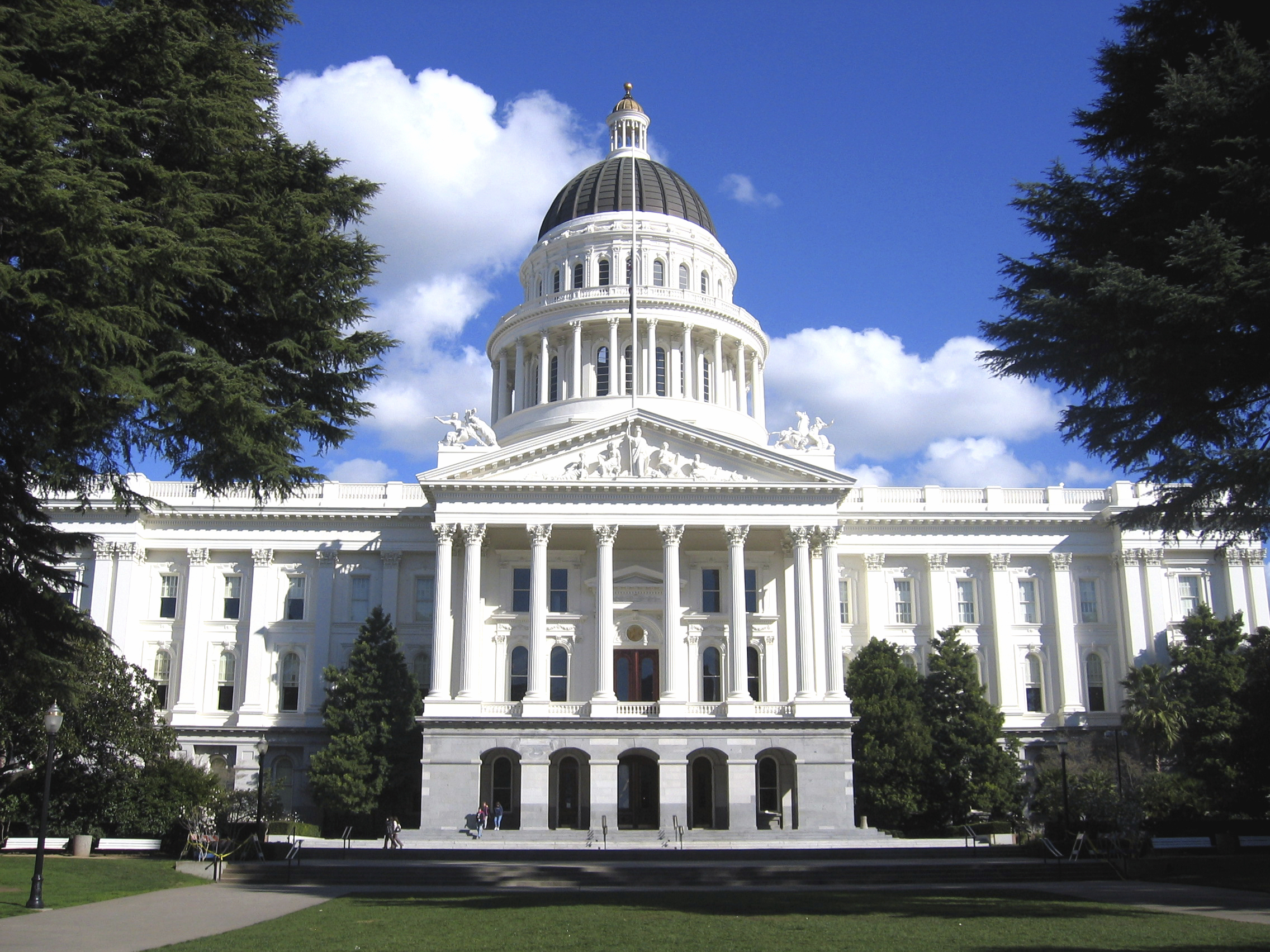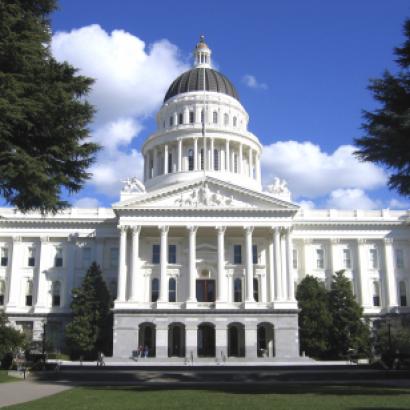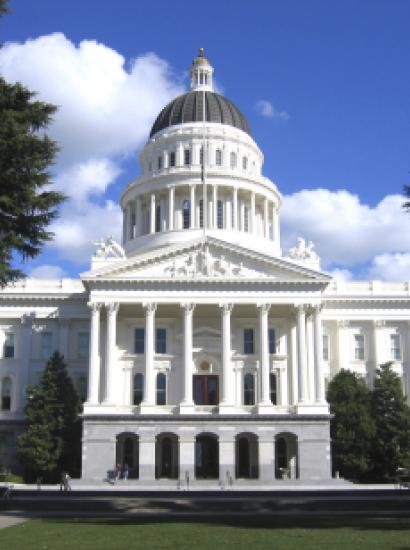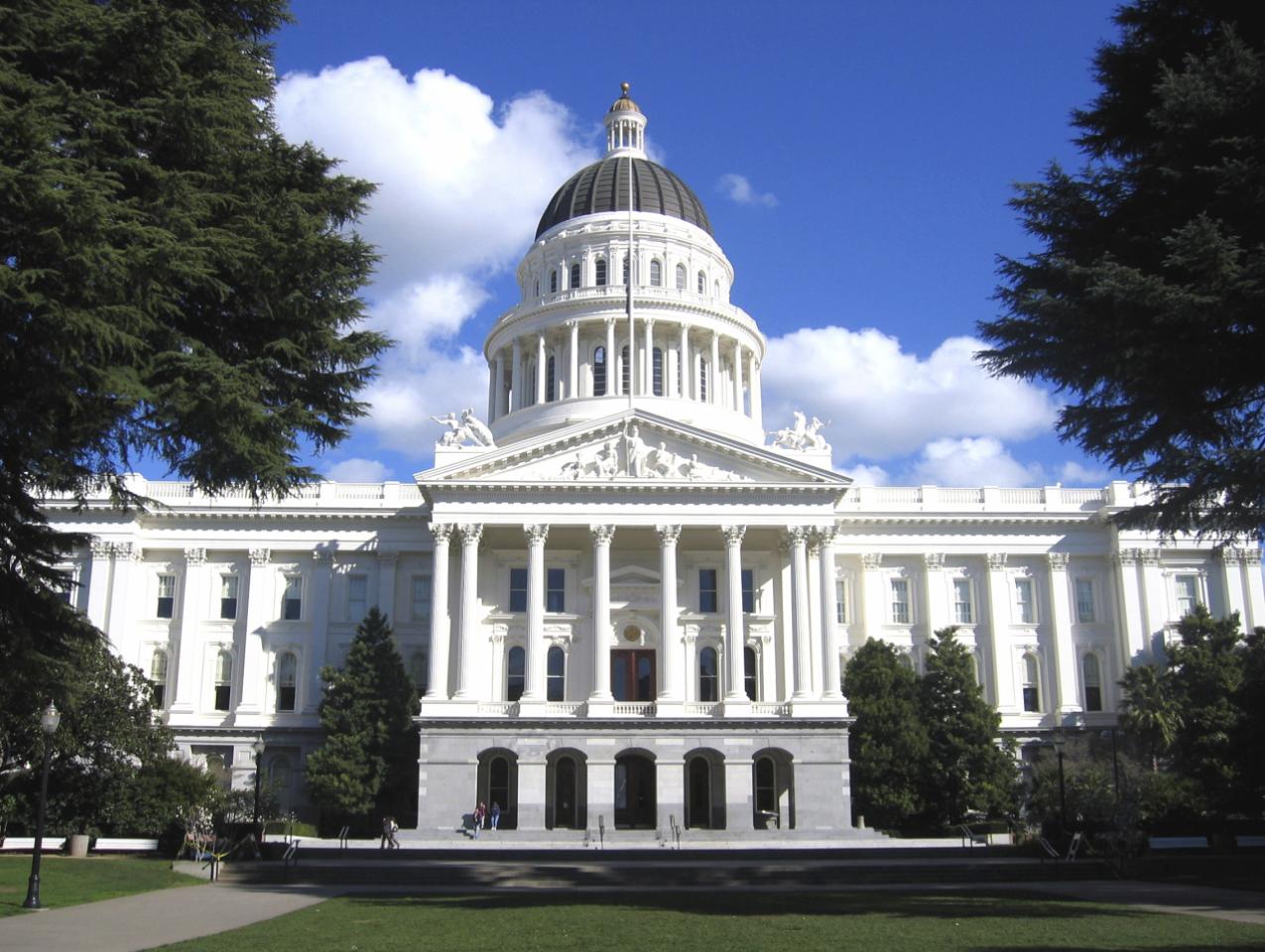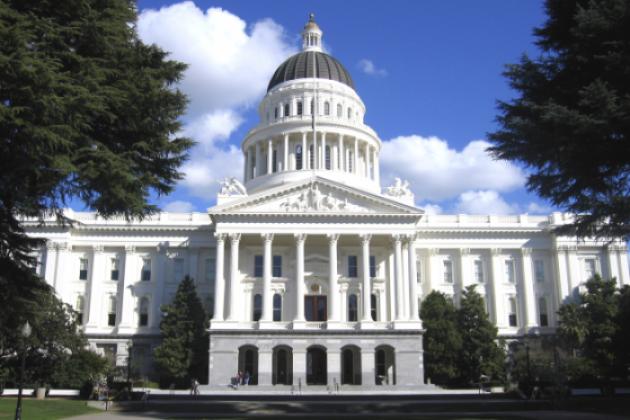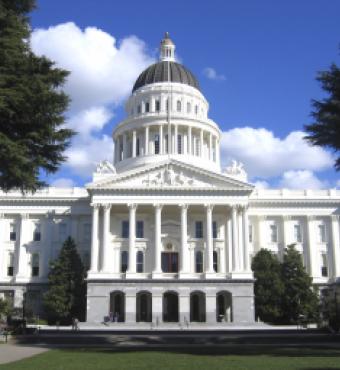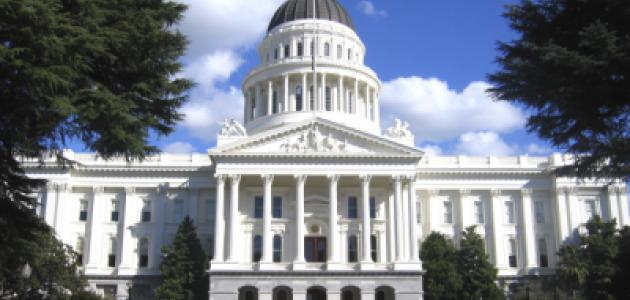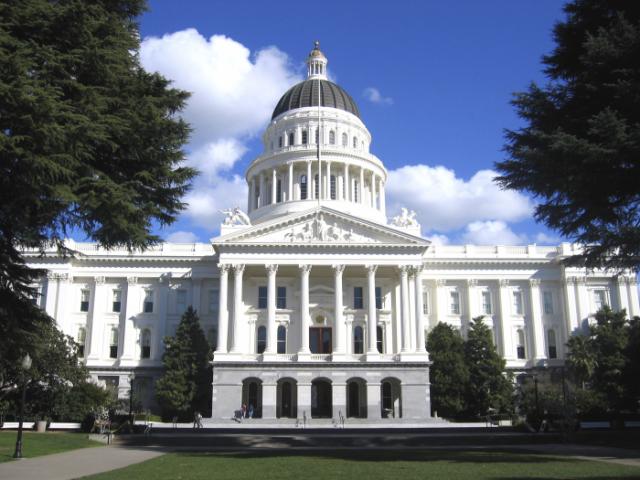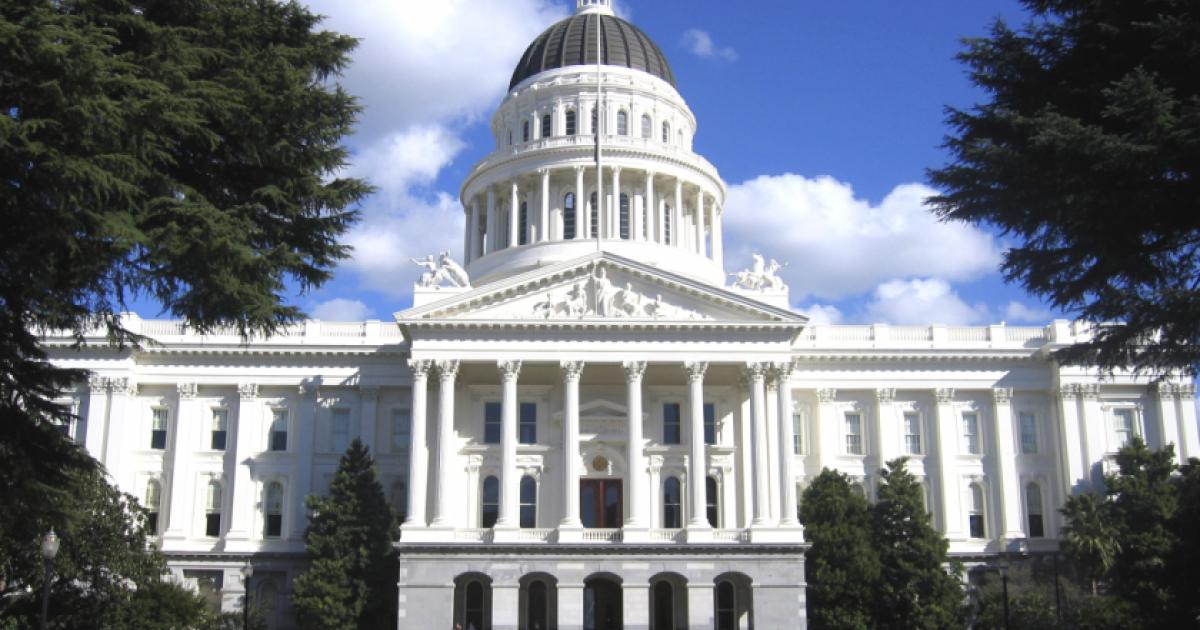- State & Local
- California
- Values & Social Policy
Be it kismet or coincidence, a power outage late last week in downtown Sacramento briefly interrupted the California state legislature’s rush to decide which bills merit further consideration in this year’s session—the notion of “lights off, somebody home” being perhaps a preview of this summer’s anticipated rolling blackouts across the Golden State.
The delay wasn’t long—only 30 minutes for the State Assembly, while the smaller State Senate relocated elsewhere to conduct its business. Nor did it stop the 120 legislators who represent some 39.1 million Californians from dealing with the task at hand.
Call this mad dash Sacramento’s annual running of the grunion, if you will. The legislative flurry continued again this week with another deadline for passing the remaining bills out of their house of origin and on to the other legislative chamber.
So what did we learn about the state legislature, other than reinforcing the impression that California has a terrible way of vetting bills—i.e., Assembly and Senate committees deciding what to do with hundreds upon hundreds of pieces of legislation in a wild sprint to its self-imposed calendar deadline, all the while providing the public with little to no explanation as to why approximately 220 bills died while over 700 others lived to see another day?
Here are a few observations:
Big Brother Isn’t Always Watching. Or so we learned from the rejection of Assembly Bill (AB) 2336, whose authors intended to establish automated cameras to reduce automobile speeding across the San Francisco Bay Area (camera catches you lead-footing, you pay a fine).
It’s the third time the measure has stalled in the legislature. Why so? Privacy concerns, for starters (added surveillance doesn’t thrill the ACLU). And, perhaps more salient to an overwhelming Democratic legislature and its core constituencies: minority communities who fear that a closer eye on poorly planned streets with lead to more tickets for individuals with less disposable income (a $50 fine for going 11–15 miles per hour over the posted speed limit; $100 for 16–25 miles per hour over; $200 for 26 miles per hour or more; $500 for traveling 100 miles or more over the speed limit).
A House Divided . . . on Housing. AB 1910 proposed California Department of Housing and Community Development grants to local agencies that agree to convert municipally owned golf courses to housing and publicly accessible open space (the Golden State has about 1,100 golf courses in all, 250 of which are locally owned).
So why did the bill fail to make the cut (yes, it’s a golf tour pun)? Because, with all due respect to the Dalai Lama, the Sacramento golf lobby is a “big hitter” when it comes to swaying lawmakers. The good news for duffers: California gets to keep it public courses open. The bad news: how to make up for the lost space (one legislative analysis concluding that the acreage held by the Golden State’s mini courses could hold up to 375,000 units of housing)?
Not Ever-Green. State Senate Bill (SB) 953 would have allowed California’s State Lands Commission to end offshore oil leases for drilling platforms in state waters close to Orange County by the end of 2024 if the oil companies running the rigs failed to agree to a buyout.
The lesson here, other than lawmakers’ short attention spans (it’s now been eight months since a pipeline five miles off the coast leaked oil that fouled the sands of Huntington Beach): despite the lofty talk of a California running on green energy, the Golden State (a) remains an big oil producer (seventh among US states); (b) that production translates to well-paying jobs; (c) those jobs create tax revenue that lawmakers would rather not do without. Translation: Sacramento’s fossil-fuel lobby has plenty of clout.
Farewell, Abe and George? Well, maybe, depending on what lawmakers decide to with the annual Presidents’ Day celebration.
AB 1872, yet another victim of last week’s purge, proposed a new Election Day holiday in California in even-numbered years, replacing February’s Presidents’ Day with a new day off in November. Five times now, the bill has failed to advance, making it the Harold Stassen of Sacramento political reforms (Stassen having mounted 10 failed presidential campaigns from 1948 to 1992).
I’d like to think this is the rare case where common sense triumphed. Sure, an election-day holiday sounds like a noble way to encourage more citizens to participate in the democratic process. However, the Golden State already has a law in place guaranteeing that every registered California voter receives a ballot in the mail a month before each and every statewide election.
Moreover, the Golden State experienced near-record participation in November 2020 and the last such election—turnout of registered voters reaching nearly 80.7% (the highest since 1976) and turnout as a percentage of the eligible voting population approaching 71% (the highest since 1952).
That said, Presidents’ Day remains an endangered species in the Golden State. AB 1655, which advanced to the floor, would make June 19 a state holiday. The significance of that date? Juneteenth honors the day in 1865 that enslaved people in Galveston, Texas, received the news of their (and their fellow Texans’) emancipation.
The measure comes with a dash of irony: to add June 19 to the slate of state holidays (it falls on a Sunday this year but weekdays in the immediate years ahead), California would remove the February holiday inspired by the birthdays of two sainted American presidents, George Washington and Abraham Lincoln —the latter, of course, nicknamed “the Great Emancipator.” And it comes just a year after San Francisco’s Board of Education abandoned a plan to rename two city public schools bearing the names of the two Mount Rushmore figures.
Question: would retailers tastelessly exploit a more somber June holiday celebrating freedom as a tie-in to sales, as they shamelessly do with the presidential birthdays?
As a recovering Sacramentan (I spent five years in California’s state capital as a gubernatorial aide back in the 1990s), I’ve come to realize that the Golden State needs at least three standards of political literacy—well, four, if one includes having adult Californians actually read the state’s thorough and sometimes exhausting Official Voter Information Guide.
The first standard: being able to spot Sacramento on a map (Californians are notorious for not paying attention their state government, unless it’s headed by an A-list celebrity; historically, the town’s endured something of an inferiority complex when compared to the more cosmopolitan Los Angeles and San Francisco).
The second standard: spend some time working inside the belly of the beast, seeing how laws are made and California’s government is managed (Sacramento has come a long way development-wise, ditching its “cow town” pejorative; I do miss the $750-a-month cottage I rented within walking distance of the State Capitol).
And the third standard: reading the bills in each legislative session—which would be more than lawmakers do in their annual rush to meet bill deadlines—and assessing what said proposals say about the Golden State’s willingness to tackle the great issues of our times.
As you might have already guessed: most Californians aren’t so policy literate.
Then again, why should they desire to be, with the grunions running Sacramento these days?







